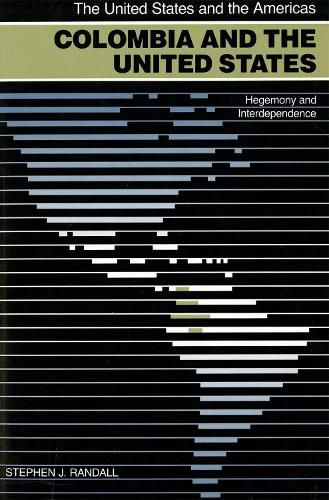Colombia and the United States: Hegemony and Interdependence
Stephen J. Randall

Colombia and the United States: Hegemony and Interdependence
Stephen J. Randall
Strategically located at the gateway to the South American continent, Colombia has long been a key player in shaping the United States’ involvement with its Latin American neighbors. In this book Stephen J. Randall examines the course of U.S.-Colombian relations over two centuries, taking into account the broad spectrum of political, social, cultural, and economic contacts that have figured in the interaction. ,br> A leader in the movement for independence from Spain in the early nineteenth century, Colombia shared with the United States the aspiration of becoming a leader for the entire hemisphere. Its early efforts in this direction - notably its initiation in the 1820s of the first Pan-American Conference - soon languished, however, as the unequal growth between the two countries took its toll. By the turn of the century, after years of destructive civil war, Colombia had slipped far behind its northern neighbor militarily, economically, and politically. The United States, meanwhile, had emerged as a great power, and the first major manifestation of the two countries’ divergence came with the U.S.-supported secession of Panama in 1903–an event that deeply shocked Colombians and tainted their view of the United States for subsequent generations.
During the twentieth century, Randall explains, a tension in Colombian politics and culture has persisted between those who advocate an independent, even antagonistic, stance toward the United States and those who propound a policy of realism that accepts Colombia’s place as a middle, regional power within the U.S. orbit. For its part, the United States has continually failed to realize that Colombians, with their European intellectual heritage stretching back four hundred years, do not see themselves as an insignificant Third World nation. The result has been an often strained relationship, which Randall traces through two world wars, economic booms and depressions, the Cold War, and, finally, the present-day guerrilla conflicts and drug trade controversies.
This item is not currently in-stock. It can be ordered online and is expected to ship in approx 2 weeks
Our stock data is updated periodically, and availability may change throughout the day for in-demand items. Please call the relevant shop for the most current stock information. Prices are subject to change without notice.
Sign in or become a Readings Member to add this title to a wishlist.

